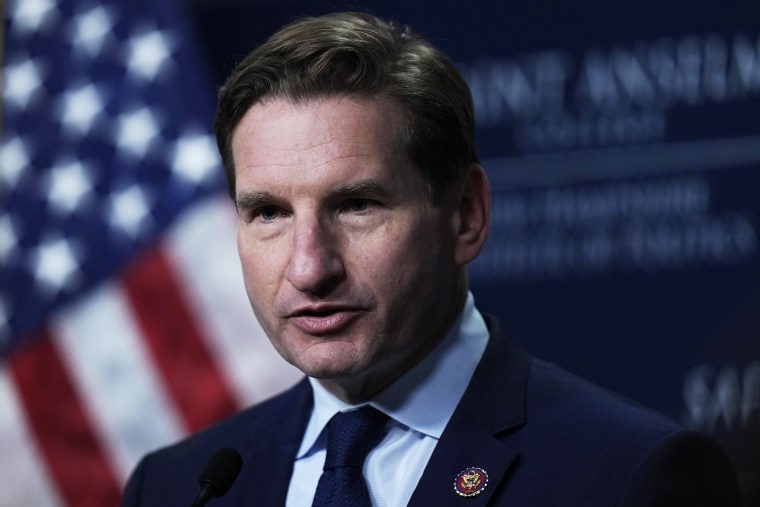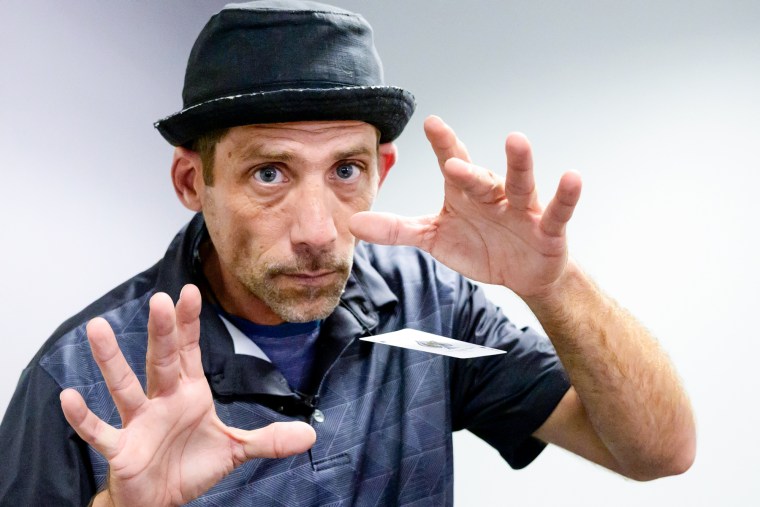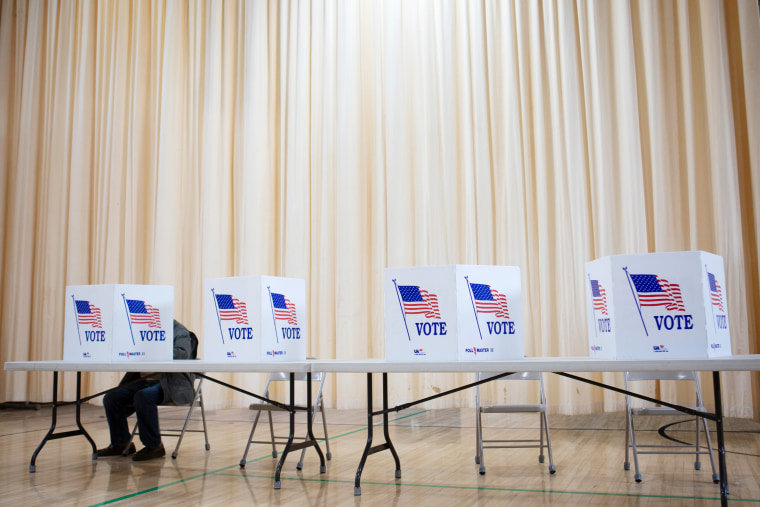Steve Kramer, a veteran political consultant working for a rival candidate, acknowledged Sunday that he commissioned the robocall that impersonated President Joe Biden using artificial intelligence, confirming an NBC News report that he was behind the call.
In a statement and interview with NBC News, Kramer expressed no remorse for creating the deepfake, in which an imitation of the president’s voice discouraged participation in New Hampshire’s Democratic presidential primary. The call launched several law enforcement investigations and provoked outcry from election officials and watchdogs.
“I’m not afraid to testify, I know why I did everything,” he said an interview late Sunday, his first since coming forward. “If a House oversight committee wants me to testify, I’m going to demand they put it on TV because I know more than them.”
Kramer said he has received a subpoena from the Federal Communications Commission, suspected he might get sued by a half dozen people and said he could even face jail time, but that he would keep working in politics.
NBC News has reached out to the FCC for comment.
Kramer claimed he planned the fake robocall from the start as an act of civil disobedience to call attention to the dangers of AI in politics. He compared himself to American Revolutionary heroes Paul Revere and Thomas Paine. He said more enforcement is necessary to stop people like him from doing what he did.
“This is a way for me to make a difference, and I have,” he said in the interview. “For $500, I got about $5 million worth of action, whether that be media attention or regulatory action.”

Kramer said he came up with the idea for the hoax entirely on his own and that it had nothing to do with his client, Biden's long-shot primary challenger, Rep. Dean Phillips, D-Minn. Phillips had paid Kramer over $250,000 around the time the robocall went out in January, according to his campaign finance reports.
Phillips and his campaign have denounced the robocall, saying they had no knowledge of Kramer’s involvement and would have immediately terminated him if they had known.
Phillips’ press secretary Katie Dolan said in response to Kramer’s statement Sunday, “Our campaign repeats its condemnation of these calls and any efforts to suppress the vote.”
Phillips’ team hired Kramer in December and January for ballot access work in New York and Pennsylvania, which involves collecting thousands of signatures from voters so a candidate can qualify for the ballot.
“I’m sure that a half dozen people will try to sue me, but they’re used to dealing with people like themselves,” Kramer said in the interview. “I can tell you they’re not used to me. I wrestled in college."
He also acknowledged commissioning an earlier deep fake robocall impersonating Sen. Lindsey Graham, R-S.C., which he said was just a test.
The calls went to 300 South Carolina likely Republican primary voters. It was a poll that had Graham’s voice ask recipients whom they supported in the GOP primary. Kramer said the response rate from the familiar voice of Graham was four times higher than the response rate to an automated call.

Kramer was first linked to the fake Biden robocall Friday by an NBC News report.
So why did Kramer wait to come forward to until he was caught, if this was his plan all along? And why he did he instruct Paul Carpenter to delete their email correspondence?
“I was waiting for the South Carolina primary to be over, I didn’t want to interfere with that,” he said in the interview. He also said that his calls impersonating the president, which went to more than 5,000 New Hampshire voters telling them not to vote, “wasn’t going to change anything” in that primary.
"If I had come out right away, it takes away from the goal of the call," he added, claiming the time was necessary to allow regulators to act.
Until Carpenter came forward, it was unclear whether the world would ever know who was behind the first-known use of an AI deepfake in a presidential campaign.
Carpenter, a New Orleans street magician, said Kramer hired him to use AI software to create an audio file replicating Biden’s voice reading a script Kramer prepared and provided.
Carpenter was paid $150 for the work, according to Venmo transactions and text messages he shared with NBC News.
Kramer said in the interview that he hired Carpenter because the magician was “down on his luck” and Kramer wanted to help.
He said he came up with the idea after having clients start ask him about doing AI work.
Kramer, a get-out-the-vote specialist and president of his own small firm, has worked on dozens of federal, state and local campaigns over the past 20 years. He has worked mostly for Democrats and his career grew out of his involvement with the Young Democrats of America, though his most prominent client was likely Ye, the rapper formerly known as Kanye West, who hired Kramer for his brief 2020 independent presidential campaign.
Carpenter, a nomadic performer, said he met Kramer through a mutual acquaintance last year and was under the impression that Kramer was working for the Biden campaign when he asked Carpenter to create the audio file that eventually became the robocall.
Authorities in New Hampshire are investigating the robocall for potentially violating state laws against voter suppression. A multistate task force of state attorneys generals focused on robocalls is looking to crack down on the people involved in the Biden robocall in order to set an early example as the technology becomes more widespread. And the Federal Communications Commission sped up plans to outlaw AI robocalls in response to the Biden robocall.

In his statement, Kramer confirmed that to distribute the calls, he hired the Texas telemarketing company Life Co., which has been named by investigators as the originator of the calls.
“They had no knowledge of the content of this call prior to delivery,” Kramer wrote. “I’d use them again, but they are done with my business.”
He also confirmed Carpenter’s account that he directed the content of the fake Biden robocall, saying the call was created “using a script of my specific choosing.”
“Even individuals acting alone can quickly and easily use A.I. for misleading and disruptive purposes,” Kramer added.
